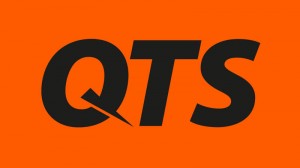IT’S hard to deny that the last five years have seen a huge shift in the way that society consumes information.
Whereas previous generations waited on news cycles for critical information updates, relied on television and print media as their sources of ‘intel’, the news and information landscape looks very different in 2015.
I often cite the importance of sports marketers applying and acknowledging what’s happening in the world at large to the often-cosseted and affluent environment of sport.
If society and consumers at large are using social media, digital channels and their own extended networks as their preferred mechanism for procuring information, news, and updates, then the sports marketplace needs to understand that a sea change is occurring.
One of the biggest shifts in traditional sports marketing – and at the heart of this sea change – is what I call ‘the cult of personality’.
By that, I mean the change in dynamic that runs at odds with one of the hallmarks of team sport – namely, the premise that the team is always stronger than the individual.
In 2015, in sports marketing terms, the team is not stronger than the charismatic individual.
That’s an uncomfortable truth for many clubs and organisations but it shouldn’t be – you just need to be smart about how you play the game.
The astonishing truth is that, when you look at the rise in personality sponsorship – ie personal endorsement deals that see high-profile stars endorse, wear, or use a particular product or service – the growth is outpacing traditional forms of sport sponsorship (eg team or organisation sponsors).
That’s not to say that team or organisation sponsorship isn’t still incredibly popular, it’s just that some personalities have an unique power to influence and engage; and that’s invaluable for businesses operating in this ‘social’ society.
The reasons for the popularity of ambassador/endorsement deals is multi-faceted, but one explanation is indisputably linked to the platforms and channels that these individuals now have to engage with, inspire and talk to both die-hard fans and the casual observer.
Even as recently as five years ago, we tended to get close to our individual stars or heroes through their clubs or teams giving us access, or through traditional media platforms writing about them. But now, mainly via social media, that’s no longer the case.
And that means, in sports marketing and sponsorship terms, the traditional power-dynamic is changing.
So what does this mean for amateur and professional sports teams hoping to generate sponsorship revenues?
Well, it’s going to be handy to have a charismatic figure on the team or within the club environment that could act as ambassador.
For clubs and teams without an obvious ambassador figure, then the club or team still needs a voice – and this is something to invest time and resource in.
And it doesn’t really matter the size of the club or organisation. Even the smallest club can identify a personality within their club and make him or her the focus of their story-telling.
Sponsorship is dependent on an equal exchange of value between the sponsor and the individual or association selling sponsorship.
Social media can provide a great shop window for amateur clubs to demonstrate the passionate and committed membership or group that makes up the club.
Sponsorship is a tool that gives the sponsor business an advantage – a way to reach a specific set of people who will be interested in the end product.
Local sponsorship deals differ in no way to large-scale national or international sponsorship in this essence and there is a lot that an amateur club can gain by looking at how larger organisations in a similar sector are managing their sponsor partners.
To this end, looking at how those teams or organisations present themselves and their sponsors on platforms such as Twitter or Facebook can be very valuable exercises.
At the heart of all good sponsorship are two essential factors.
The first is that the club, team or individual looking for sponsorship represents a community of people that are passionate and inspired by the shared activity they undertake.
The second essential factor is that the club, team or individual has the ability to influence this group of people. That, after all, is what sponsors are looking to borrow/tap into – access to an engaged audience that will see them in a preferential and endorsed environment.
So, if it’s personality that does it, don’t fight it – feel it. Get your ambassadors on side and ready for action and be sure that you’re talking to potential sponsors that you are happy to endorse and support. The rest will tweet itself.
Catherine Hawkins is founder of Think!Sponsorship.
* * *
 At QTS, we supply full kit for Troon FC Juniors
At QTS, we supply full kit for Troon FC Juniors
In 2014, we agreed to sponsor Troon FC Juniors and supply a full home and away kit for the entire team. This helped them compete in the JSFA league and cups. This is one of numerous teams we support throughout the UK.
At QTS, we have high hopes
We are a preferred partner with English Championship football club, Derby County. The team is going from strength to strength and their home ground isn’t too far from our English HQ.





